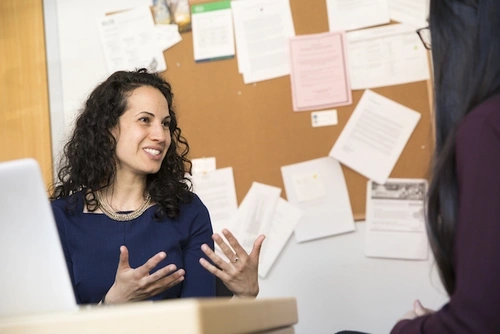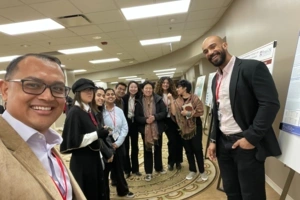Faculty Expert
Three hundred million children around the world rely on school meals as their primary source of nutrition. As the COVID-19 pandemic has limited access to many of these programs, new research from Penn GSE’s Sharon Wolf and two colleagues suggests that hunger poses developmental risks for young children.
Wolf and co-authors Elisabetta Aurino and Edward Tsinigo looked at the effect of food insecurity for children over a three-year period in Ghana using World Bank data. In an article published this month in PLOS One, they detail how damaging food insecurity can be for young children.

They found cognitive skills, including academic and memory development, were most sensitive to food insecurity. Any type of food insecurity, even in short periods, was associated with lower literacy, numeracy, and short-term memory skills. Perhaps surprisingly, children who reported hunger issues only once or twice over three years suffered worse outcomes than children who were persistently hungry.
While these findings are based on data from Ghana, Wolf and her colleagues believe the lessons are universal.
We spoke with Wolf about her research, what it can tell us about the COVID-19 pandemic, and what she would say to parents who are worried that their young kids are missing out on school.
Q: What surprised you about your findings?
We were expecting the kids who were in households experiencing chronic food insecurity to be worse off. But we found that having food insecurity once or twice is worse than having persistent food insecurity. Even if kids have a dip in food insecurity and come out, that’s significant for their development.
Instability, going in and out of poverty or in and out of hardship, is more difficult than being consistently poor. There’s something about instability that’s really consequential.
Q: Why do you think that is?
A: We need to do more research here, but if you have predictable deprivation—if you know there won’t be enough food next month—that might be less stressful than wondering if there will be enough food or money next month. Beyond just nutrition, that stress could have ripple effects through the household. If parents don't know if they’ll have work, that could affect how they engage with kids, or how their kids respond to them.
Q: Your research shows that kids who don’t have enough food during the preschool and early grade years have more problems with literacy, numeracy, and short-term memory, among other issues. Are these permanent changes?
A: We know that this negative impact on early skill developments have long-term consequences, but we also know that children are resilient. They will be able to catch up, but they will probably need the right supports and interventions later on.
Q: Your research is coming out as school meal programs in the US and around the world are shuttered or restricted, and many parents are suddenly out of work. Families who wouldn’t have considered food security in January or February are now worried. As the pandemic has played out, what have you been thinking about?
A: I do think this pandemic is going to have consequences for children, especially the most vulnerable. Three hundred million children around the world rely on school meals as their primary source of nutrition. We are seeing how inequality is really a compounding problem.
It takes time to enroll in food-assistance programs, like SNAP here in the US, especially when so many people are applying at the same time. There can be delays, and people who should be eligible for these programs can’t access food or other funds right away. That can lead to the type of temporary food insecurity that we show can be so damaging.
It’s interesting, but many low-income countries like Ghana actually have better social welfare policies on the books. They can’t always fund or fully deliver these initiatives, but the starting point for these laws is that no one should be food insecure.
Not having to go hungry should be a basic human right, especially for children, especially in the richest country in the world.
Q: You have done other work looking at early childhood development. Many parents now know how important the pre-K and early school years are for fostering social-emotional skills. They are worried that their kids are missing crucial development time in schools. What would you say to them?
I think most kids are going to be OK. This is not a normal time, but I think kids will be able to make up what they are missing over the next year. I am worried about kids who are already behind or who already lived in stressful or chaotic households, where having more time in those households might be detrimental. In those cases, it’s not about watching more TV. It’s about toxic stress and trauma.
In terms of what I would say to parents, I think it’ll be OK. Parents have enough on their plate right now. If you tell them their kids will be OK, it’s both a reassuring message and the truth.
Media Inquiries
Penn GSE Communications is here to help reporters connect with the education experts they need.







